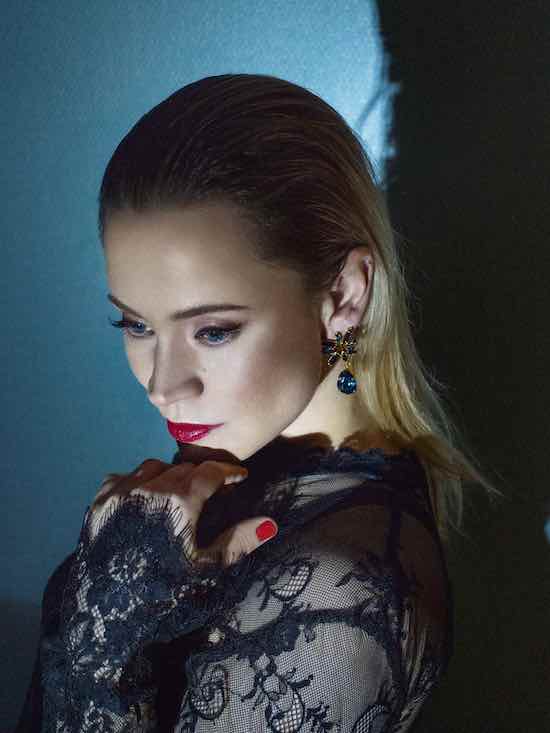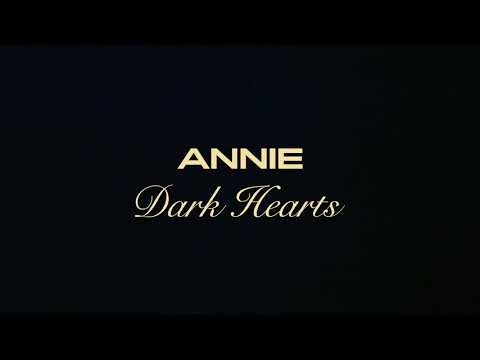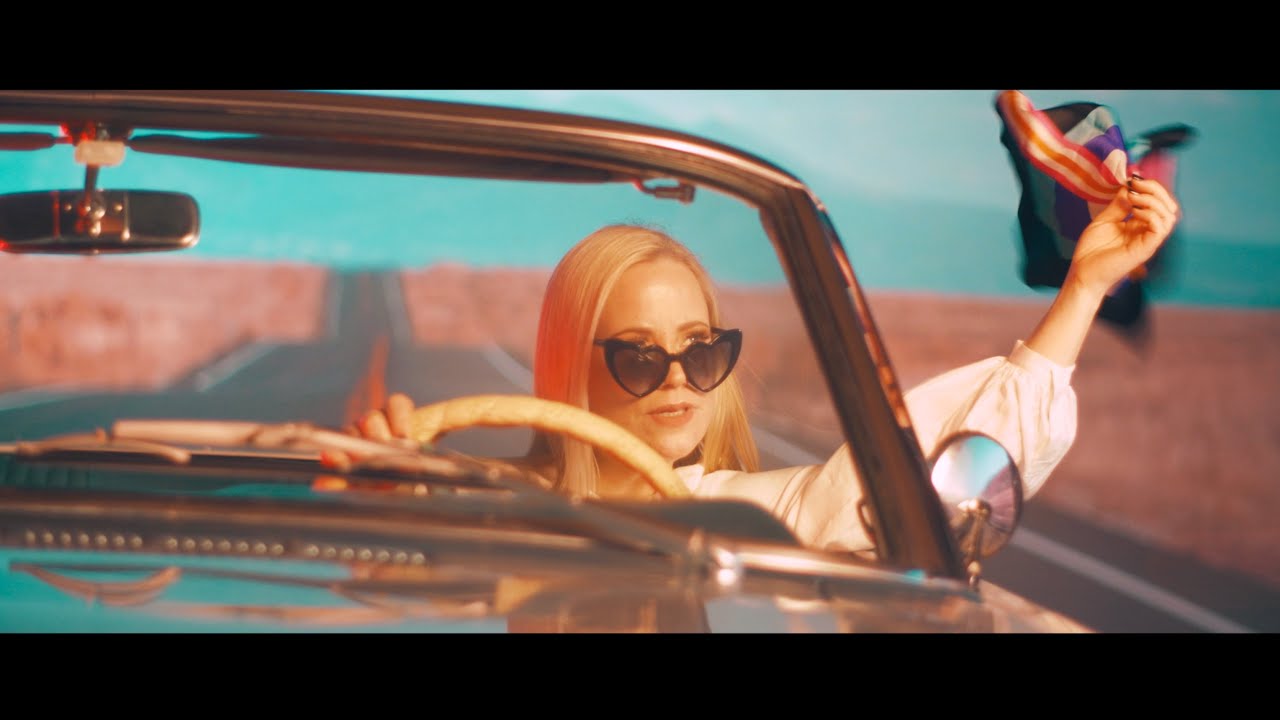In 1999, a debut single took off in clubs that set several paths for 21st-century pop. Sung by a 22-year-old Norwegian called Annie Lilia Berge Strand – known simply as Annie – it was called ‘The Greatest Hit’.
Path one: it lifted the electro-heavy soundbed from Madonna’s 1982 debut single ‘Everybody’, and helped ignite the bootleg/mash-up culture of the early Noughties. Path two: it prompted a new wave of playful, club music from Scandinavia. Three: it was a big early influence on Brian Higgins of pop production house Xenomania, whose singles for Girls Aloud and Sugababes came to define the sound of the next decade (old hands like Kylie and the Pet Shop Boys soon flocked to him too).
"I remember hearing ‘Greatest Hit’ amongst some clattering techno [in a DJ] set and thinking it was otherworldly and beautiful,” Higgins said in 2009. “I always liked the idea of pop music coming from another place, another way of thinking, and there certainly wasn’t much [of that] around at that time."
More glistening Annie tracks followed, veering from Tom Tom Club-spiked bubblegum pop to electroclash-flavoured disco (it’s also no surprise Higgins and Richard X – one of the mash-up movement’s main architects – became long-term Annie collaborators.) 2004 spawned ‘Chewing Gum’ and ‘Me Plus One’ from her debut album Anniemal. 2009’s Don’t Stop boasted ‘Songs Remind Of You’ and ‘My Love Is Better’. Since then, Annie singles and EPs have appeared occasionally, exploding like fireworks, among them the brilliant ‘Anthonio’ and the Lil’ Louis-sampling ‘Russian Kiss’ (the remixes were ‘Norwegian Kiss’, ‘German Kiss’, ‘Swedish…’ you get the picture).
It’s been a respectable career, but it seems extraordinary given her talent and beauty that Annie remains relatively unknown. You sense a deeper story going on, and there are several, in fact. There’s the story of a woman in her early twenties whose boyfriend tragically died, prompting her to run away from her hometown. There’s the story of a woman in her early thirties who refused to be categorised by the record industry. There’s the story of a woman turning forty, moving home to be close to her mother who is now ill with dementia, with fading memories all around them. The woman then has two kids in quick succession, and makes an album that tries to tell the story of a whole life.
Annie is all of these people, and in 2020, she’s releasing her first proper album in eleven years, which isn’t a club record at all. Dark Hearts is a moody, neon-lit midnight pop affair, which she calls “a soundtrack for a film that hasn’t been made yet”. It’s a story of a young woman developing and going through her life, she tells me, “becoming a woman and looking back to how her early life was and it’s also about her nightmares.” It’s inspired by the film music of Vangelis, soundtracks to David Lynch movies, The Wicker Man and 80s apocalypse thrillers like Miracle Mile, every song seen through a neon-lit prism. “And yes, it’s inspired by me,” Annie laughs.
We Zoom on a Thursday lunchtime, Annie sitting on a bed in a boxy child’s bedroom surrounded by silver balloons. She has a daughter who’s two, and a son who turns one today, she explains. They’re not doing anything particularly exciting to celebrate – she’s sorted the balloons because her daughter kept asking about them, and her boyfriend’s applying for a job, so they’re taking things easy.
There’s none of the glossy distance of the pop icon about her at all: she’s a 42-year-old mum in her comfy jumpsuit at home, sharp, clever and sweet, her head full of ideas. “To me, this is a very grown-up record,” she says. “Before I was always looking forward, but when you’re now very much in the middle of your life, you’re looking back too. Then you’re going forward again, back and forth, back and forth. You’re trying to combine it all into a world.”
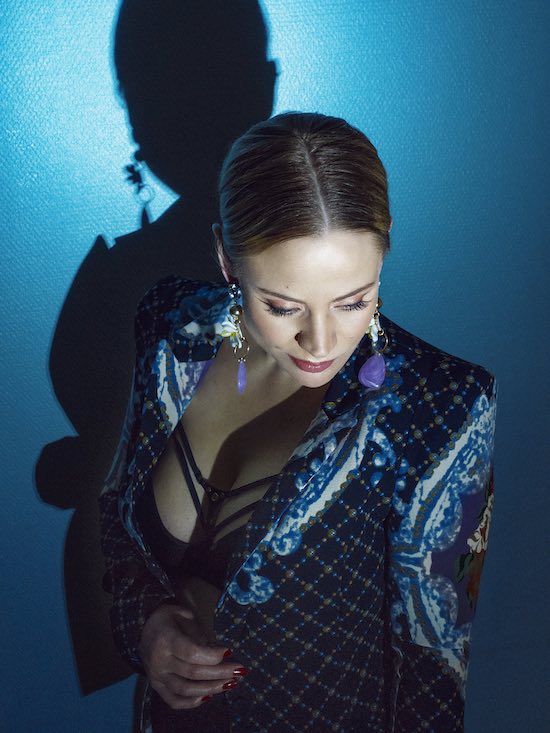
Albums have always been important to Annie, who was born in Bergen, Norway’s second city, in November 1977. Her early childhood was tough – her father died of cancer when she was seven – and she became a “music nerd, listening to records, collecting records”. Her favourite artists included the Pet Shop Boys (“every single album – I loved them”), Blondie and Suicide. She’s also loved Vangelis from her youth. “I was obsessed with him, and still listen to a lot of him.”
In her mid-teens, she got into clubbing. She met local house DJ Tore Kroknes at 17, and the pair became partners, in all senses. His 1998 track, ‘Song For Annie’, under his DJ name DJ Erot, is a fantastic indicator of his talent; he also released two double A-side singles with Björn Torske Then came Kroknes’ production work on ‘The Greatest Hit’. Around the same time as the track took off internationally, he got sick.
Kroknes had had heart problems since birth, Annie explains. “I experienced so much with Tore. It was almost two years before he actually… passed. It was quite heavy. We were so young when the whole thing happened. I experienced a lot.” The second track on her album, ‘The Streets Where I Belong’, feels unmistakably about him, and when I ask her about it, she admits that it is. Its first verse is especially touching: “Annie, Annie, they’re playing our song/ And for a moment I’m transported to where I’m from/ Teenage lovers when we were young/ All of the parties under the midnight sun.”
She was a mess after he died, she says (understandably so). She’s still in touch with his parents, who have written to her to say they’re so pleased she has children now. “It makes me wonder about the life that they have, missing him, and what they could have had.” In 2001, she released a limited-edition single that was an Erot production: ‘I Will Get On’, a deep house tune full of Róisín-Murphy-style swagger. It took four years until her debut album, Anniemal, came out in the UK. It’s still an electronic pop classic full of songs that sound huge, including ‘Chewing Gum’, co-written with Richard X, who had recently scored top ten hits for Rachel Stevens and Liberty X.
‘Chewing Gum’ only got to no. 25, and remains Annie’s only top 40 hit. It was released on Warner subsidiary 679 Recordings, home to The Streets, The Futureheads and Death From Above 1979; she’s said in recent years that labels didn’t know how to promote her. “I didn’t fit in with their ideas of what a young pop singer should be,” she adds today. “They’d be all, ‘Why doesn’t she have all these dancers? Why aren’t her visuals better?’” This feels like bizarre criticism, given that the cover of Anniemal still looks fantastic: a good-looking blonde woman stares impishly out of the frame, her nose and mouth hidden by her jacket, her name spikily scrawled out as if in white Tippex.
The ‘Chewing Gum’ video is another example of how Annie stands apart: rump-shaking dancers surround her, but she looks odd against them, more authoritative, imperious, cheekier, cooler. After Anniemal, she signed to Island Records, but severed ties with them in 2008 after working with them for several years; she went to Oslo label Smalltown Supersound instead, who release as much experimental jazz and rock as they do electronic pop. She doesn’t see the move as a step downwards for her ambitions. “They were great – I got to tour Japan and had a great time.”
The trouble was, artists that didn’t care about fitting into pop’s more obvious tropes weren’t normal back then, she says. “I was into alternative production and underground music but also into pop, and people didn’t get it – my different interests were always questioned. Things have changed so much. You can do whatever now. New artists don’t feel they have to belong somewhere.”
What’s changed? “The record industry becoming digitalised,” she says, smartly. “Everybody had to try and make things happen in their own way. The internet has opened up things for men as well as women, which is really great. I think the industry became more punk, to be honest, and that’s a good thing. Of course, you have big artists still, but it’s much more of a challenge for them as well, living in digital times. But so many of them are more interesting now too.”
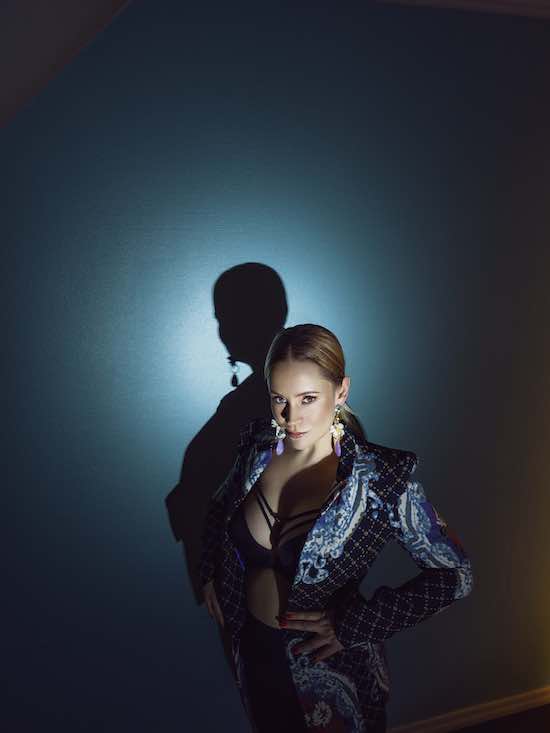
In the middle of her Island Records woes, Annie moved away from home to Berlin, which was another bubbling source of inspiration. She loved the city for its cheapness, its clubs, and its fantastic culture; she also made friends there like Peaches. (“She’s such an amazing artist, musician and person – she’s got such a big heart.”) She made her living as a DJ, songwriting for others, and releasing occasional music, keeping up her connections with Xenomania and Richard X. Then in 2015, Richard X introduced her to producer Stefan Storm, from the Swedish production duo Sound Of Arrows. This happened in a setting that says much about Annie’s approach to things: not in a glitzy recording studio, but a South London pub.
Two years later, Annie and Storm started working together, but then Annie’s mother got diagnosed with Alzheimer’s disease, so her daughter returned to Bergen. The move home was “a very weird thing,” Annie says. “To see my mum while she’s not too sick – that was really important to me. I also missed my old friends. But being back…” She takes her time as she talks. “You think about the kid that you were when you wanted to do music, the kid that dreamed about getting away from here. Now you’re back to the place you ran away from. That can be a bit of a challenging feeling.” She laughs. “Even though I’m a grown-up!”
Then came her first pregnancy, but she kept making music even when it was exhausting: her press release mentions her doing a “lot of puking while I was singing”. Having kids and getting older made her think more about the future, while her mother’s dementia progressed, and other older relatives around her were getting ill. ‘Corridors Of Time’ from the new album is a particularly moving song around this theme, featuring an old couple dancing together and a young woman dancing alone.
The older man is inspired by Annie’s elderly uncle, who acted as a father figure to her after her father died: “A few years ago, when my uncle was really sick, I saw him and my aunt dancing together and thought it was really sweet.” The young woman is her. “I’d go to certain clubs when I was young and just dance by myself. I had this vision of uncle and aunt looking back on what they’d experienced, and me looking forward to future, everyone sort of stuck inside that perfect picture of the place that they want to go, but with memories of who you were.” She smiles. “The album’s all about that sense of where you’re going and where you’ve been. It’s a combination and a puzzle.”
Annie has wanted to make film music from the very beginning of her career, she says, and has loved it when some of her songs been picked out for TV series and films (“like [2014 US thriller] The Guest, which I think was really good”). Storm and Annie imagined they’d make an EP, but they quickly realised that what they were doing could be more long-form. They sat down for hours to discuss how each song should feel like it had emerged from a storyboard or a scene, and the artwork to the tracks she’s released are strikingly dramatic, all midnight blues and neons. The mood is of a nostalgia-drizzled, slightly threatening postmodern neo-noir.
Another influence on the album’s mood was Enya, Annie laughs, who is one of Storm’s ongoing obsessions (he turned up to their first session in Berlin with an Enya album). “I think Enya brings you to a place where you want to be. She’s like the mum taking care of everyone! You want to wrap yourself up in this place she creates.” You also hear Annie’s love of The Wicker Man’s ‘Willow’s Song’ in her vocals to ‘Stay Tomorrow’, while ‘American Cars’ is a melancholic relative of Giorgio Moroder’s ‘Chase’, referencing J.G. Ballard explicitly (“so before we crash”, she adds, “kiss me under the stars”). ‘In Heaven’ could have been a track for Berlin – the Top Gun soundtrack featuring band, not the city – while the spoken-word passages and whispery vocals of ‘Mermaid Dreams’, also tie her back to the numb wooziness of electroclash. “The music ceases,” she tells us. “I glide away.”
After the early sessions in Berlin, the album was worked on in a fittingly cinematic location: a grand, early 19th-century house on top of a mountain by the Norwegian coast (although Annie’s boyfriend found some work as a gardener next door, she adds). The house was rumoured to be haunted by a dead nun, and that eeriness also had its effects: “Being on a mountain above the sea makes the house really foggy, and it’s true that you could sometimes see something moving in the garden." Ideas of apocalypse pulse through the album as well, in ‘The Countdown To The End Of The World’ (“It’s the ending of the world on an ordinary day/ Will they remember who we were as the moments melt away”) and ‘The Bomb’ (“Everybody’s shouting twenty minutes counting… dance into the light and watch it all come down”).
“There are a lot of emotions in Dark Hearts,” Annie explains. “A lot of feelings going on.”
The album ends with two tracks about closure and conclusion, with lyrics that make you think about how far Annie has come, and where she has made herself go. The synthesiser-heavy ‘The Untold Story’ is like a magical 1980s dream-pop confection: “Forever we are somewhere still together,” she sings. The space-age ‘50s waltz-time of ‘It’s Finally Over’ makes you think of Julee Cruise against her red curtain, but brought into the present, with an added sharpness. “Fairytales don’t happen,” it begins, “I got lost into the night/But the thunderclouds are parting/And it suddenly feels alright.”
It ends beautifully too: “I’ll find a lucky star and celebrate now/ I’m off to see the world/ Goodbye.”
I tell Annie I love her record, especially as it creates a new soundscape for her, but still shimmers with moments of her musical past (she’s spoken to herself – "Annie, Annie” – in so many songs before, and on this album the self-direction sounds particularly sincere). I also say that it love how it captures the strangeness of getting older when you’re still the same person that lived all those younger lives. “Ah, that’s so good! Thank you!” She looks so young sitting among the silver balloons. “That makes me very happy. We can’t escape who we are.”
What does she hope for the album? “I’m not hoping for it to be in charts or anything like that. I just want people to listen to it in five years and think it’s still interesting.” Then she adds something simple that speaks volumes about her attitude, her career, and the hardships she has survived, as she’s continued dancing on her own, to her individual, glittering beat. “I just want this record to stay with people, really. For it to have a long life.”
Annie’s Dark Hearts is out on Friday via Annie Melody

